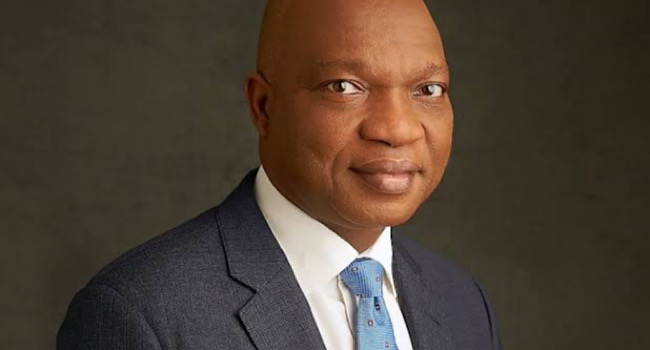Business
Shell reveals investments to meet Nigeria’s domestic gas demand

The Shell Petroleum Development Company (SPDC) has stated that it has positioned itself to meet Nigeria’s daily domestic gas demand, projected to hit five billion standard cubic feet by 2022, by developing gas fields.
The super-major energy firm also reiterated its support for the Federal Government’s goal of using Nigeria’s proven gas reserves to drive economic activities for gas-based industrialisation.
A statement issued by Mr Bamidele Odugbesan, Media Relations Manager, quoted Mr Osagie Okunbor, SPDC’s Managing Director, as saying that the firm remained optimistic about developing Nigeria’s gas potential.
Okunbor, who doubles as the Country Chair of Shell Companies in Nigeria, said the organisation’s support is shown in its multi-billion dollars investments in four of the ‘Seven Critical Gas Development Projects’ of the Nigerian National Petroleum Corporation (NNPC).
According to the statement, Okunbor spoke at the Nigerian Gas Association’s 12th International Conference and Awards held virtually on Feb. 25, 2021.
The theme was: “Powering Forward: Enabling Nigeria’s Industrialisation via Gas”.
Okunbor said: “Shell has invested in the Assa North Gas Project; four unitised gas fields; Brass Fertilizer Company and the Cluster Development of Okpokunou/Tuomo West (OML 35/62) to support the government’s drive for national development.
“I am very happy that NNPC and the Nigerian Content Development and Monitoring Board have taken key roles in these projects, and these are positive steps.’’
He commended the government’s recent progress in gas development and stated support for NNPC’s aspiration to grow domestic gas usage in Nigeria to 5 billion cubic feet of gas per day from its current 1.7 billion cubic feet of gas per day by next year.
“Nigeria has launched out on a few audacious and frankly great projects to essentially drive our ambition as a country in this regard.
READ ALSO: Claims that Shell under-reported two million barrels of crude false – DPR
“Let’s find a way to make sure that we stay on course and begin to put our efforts in a consistent manner towards downstream where our country can get the ultimate benefit for gas,” Okunbor said.
He also called for robust discussions on an agreeable price framework in order to attract investments in the country’s rich gas sector.
According to him, a robust pricing framework will be very helpful to unlock Nigeria’s proven gas reserves, especially for power, agriculture, and industrial sectors.
Okunbor said the current pricing regime did not quite fit the wider framework of what the gas industry does.
“We want to incentivise methanol and fertilizer production, which is extremely important, to gear up our agricultural sector but the price regime now in that sector is lower than the kind of prices that you have for supply to the power sector and industrial establishments.
“To make domestic gas work, we do need a right price regime. It might just mean that some sectors are supported more than others that can naturally carry themselves.
“The Petroleum Industry Bill provides that framework,” Okunbor said.
He said that gas was by far more important as a catalyst for development.
The Shell Country Chair noted that with more than 200 trillion cubic feet of proven gas and having the world’s ninth-largest gas reserves, Nigeria could satisfy both domestic and export markets.
He said that the nation’s full potential in gas could be attained if the right policies and processes were put in place and the country continued to drive those policies, processes, and gas infrastructure.
Join the conversation
Opinions
Support Ripples Nigeria, hold up solutions journalism
Balanced, fearless journalism driven by data comes at huge financial costs.
As a media platform, we hold leadership accountable and will not trade the right to press freedom and free speech for a piece of cake.
If you like what we do, and are ready to uphold solutions journalism, kindly donate to the Ripples Nigeria cause.
Your support would help to ensure that citizens and institutions continue to have free access to credible and reliable information for societal development.